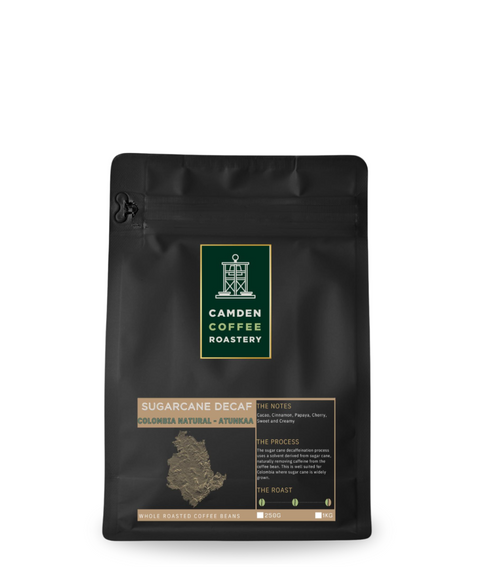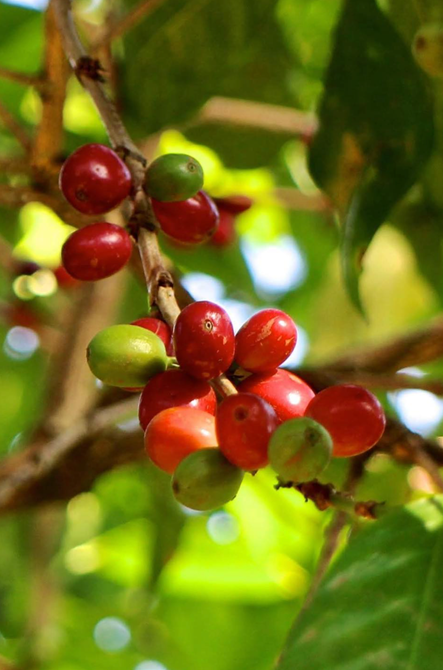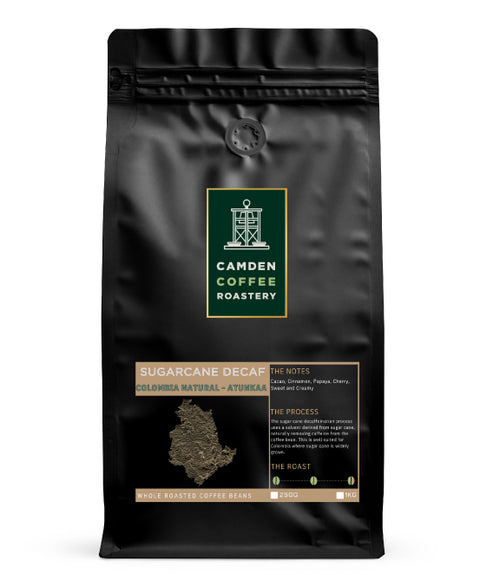


Colombia Atunkaa - Sugarcane Natural
Roast
Cacao, Cinnamon, Papaya, Cherry, Sweet + Creamy
This community lot is composed of coffee grown by farmers around the Piendamo town in Cauca and processed natural by ACC association before being sent for decaffeination to a Descafecol (a de-caffenator company in Colombia). The association’s overall goal is to improve value for growers and provide sustainable income away from illicit crops. Adding a decaf coffee produced and marketed with Siruma further contributes to achieving this goal. The decaffeination process is colloquially named the “sugarcane’ process as it uses a byproduct of sugarcane fermentation (organically existing ethyl acetate) as the decaffeination agent, making it one of the most sustainable decaf processes that also preserves maximum favour.
About Sugar Cane Decaf Process
Also known as E.A. - “ethyl acetate” decaffeination is a natural process that not only maintains great integrity of green-coffee favour, but also allows us to offer a decaffeinated coffee that best supports a vertical supply chain. This is due to the fact that the growing, processing, and even the full decaffeination process all happens at the source in Colombia, meaning all value added by these processes stays within the country of origin and its
communities.
You can find out more about the process at the decaffeination company’s website - Descafecol
How does it work:
1. The washed and dried green coffee is received at the decaffeination plant and it is steamed for approx. 30 minutes. A low-pressure steaming process opens the pores of the coffee, allowing for caffeine extraction.
2. Coffee is placed in a solution of water and Ethyl Acetate (E.A.), a naturally occurring compound and solvent derived through the fermentation of sugarcane. While submerged in the solvent, E.A. naturally bonds to the salts of chlorogenic acids within the coffee, allowing for the extraction of caffeine.
3. Once the solvent is saturated, the tank is drained and fresh solution is introduced. This continues for about 8 hours.
4. After the last of the caffeine has been extracted, the coffee is removed from the solution and prepped for another steaming. The final low-pressure steaming removes the remaining traces of E.A
5. Decaffeinated coffee is then dried, physically polished to ensure cleanliness, and packaged for export.
If you don’t choose a grind, we’ll send wholebean by default.
I was blown away by the Colombia Atunkaa Sugarcane Natural Decaf — creamy cacao and spicy cinnamon dance alongside juicy papaya and cherry. The sugarcane decaf process gives it a clean, vibrant sweetness without dampening the complexity. Smooth, ethical, and truly flavour-forward.